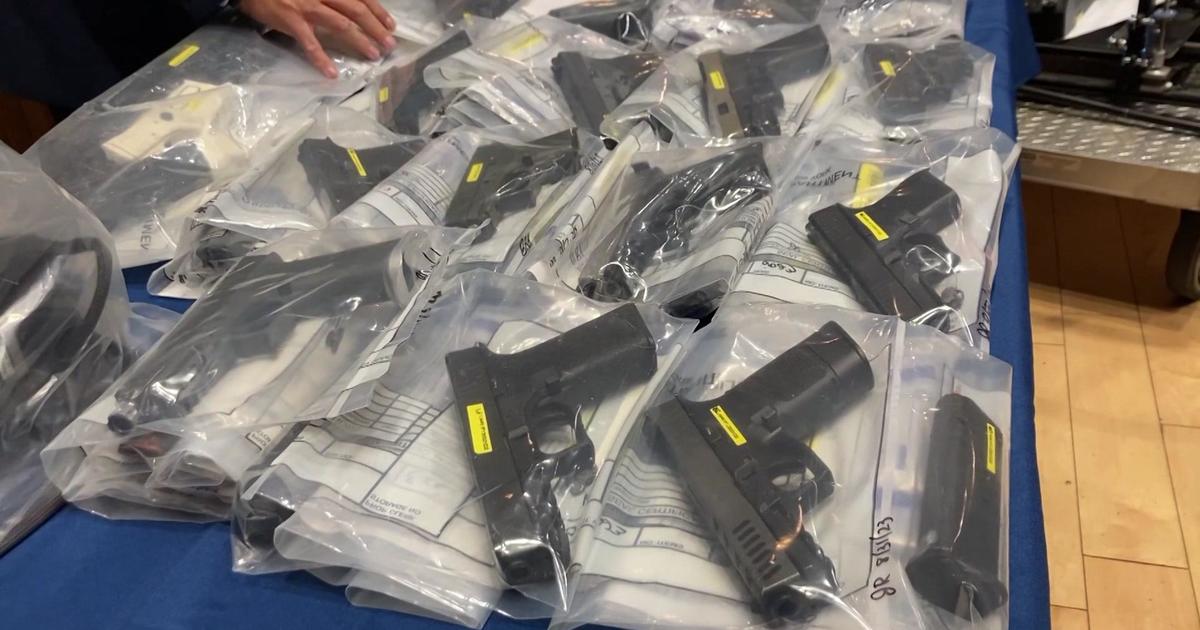The Supreme Court is set to hear arguments on Tuesday regarding the Biden administration’s attempts to regulate ghost guns, unserialized firearms that have become a growing concern in the realm of gun violence. This case, known as Garland v. VanDerStok, does not revolve around Second Amendment rights, but rather focuses on whether the Bureau of Alcohol, Tobacco, Firearms and Tobacco overstepped its authority when it issued a regulation in 2022 that aimed to subject ghost guns to the same requirements as commercially made firearms.
The regulation in question clarified the definition of a “firearm” in the Gun Control Act of 1968 to encompass weapon parts kits that can be assembled into operational firearms, as well as incomplete frames of handguns and receivers of rifles. The goal of this measure was to address the increasing prevalence of crimes involving ghost guns, which can be easily assembled from kits and parts available online. These firearms lack serial numbers and transfer records, making it challenging for law enforcement to trace them back to their purchasers, thereby making them appealing to individuals who are prohibited from owning firearms or intend to use them in criminal activities.
By expanding the definition of a firearm to include these kits, the manufacturers and sellers of ghost guns would be required to obtain licenses, mark their products with serial numbers, conduct background checks on potential buyers, and maintain transfer records – all obligations that commercial gun manufacturers already adhere to. A group of 20 major cities submitted a filing to the Supreme Court, indicating that the rule has been effective in reducing the use of ghost guns in their jurisdictions and across the country. For example, New York saw a decrease in ghost gun recoveries last year for the first time in four years, while Baltimore experienced a decline in 2023 for the first time since 2019.
The legal challenge against the Biden administration’s rule was brought by a coalition of firearms owners, gun rights groups, and manufacturers who argued that the ATF did not have the authority to alter the definition of a firearm to include kits when the Gun Control Act was originally drafted in 1968. Both a federal district court judge and a panel of three judges on the U.S. Court of Appeals for the 5th Circuit sided with the challengers, invalidating the regulation. The Biden administration subsequently appealed to the Supreme Court, contending that the rule simply ensures that ghost guns are subject to the same administrative requirements as commercial firearms sales, such as background checks and serial numbers.
The Solicitor General, Elizabeth Prelogar, criticized the lower court’s decision, stating that it would allow individuals to anonymously purchase kits online and assemble fully functional guns without undergoing background checks or obtaining serial numbers. The challengers argued that the ATF’s clarification contradicts the plain text of the Gun Control Act and risks disrupting the regulation of popular semiautomatic firearms. They emphasized that any changes to the regulation of privately made firearms should be enacted by Congress, not the ATF.
The Supreme Court’s involvement in this case comes after it recently invalidated a separate measure that banned bump stocks, accessories that increase the rate of fire of semi-automatic rifles. In that ruling, the conservative majority of the Court determined that the ATF had exceeded its authority in implementing the ban following a mass shooting in Las Vegas in 2018. Chief Justice John Roberts and Justice Amy Coney Barrett, who previously voted to halt the district court order invalidating the ghost gun rule, are expected to play crucial roles in the current case.
The outcome of this case will have significant implications for the regulation of ghost guns and the efforts to combat gun violence in the United States. The Supreme Court’s decision is anticipated by the end of June 2025, and it will ultimately determine whether the Biden administration’s rule on ghost guns will be upheld or invalidated. Until then, the debate over the regulation of these unserialized firearms remains a contentious issue at the intersection of gun rights, public safety, and the interpretation of federal laws.









